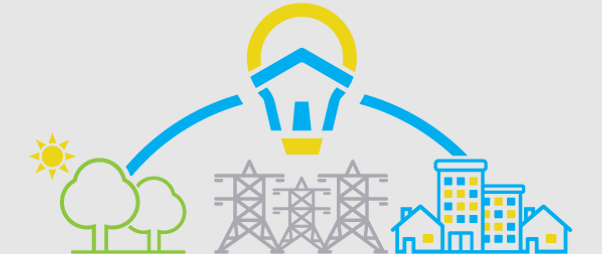Energy Conservation vs. Energy Efficiency
How is energy conservation different from energy efficiency? Energy conservation is the decision and practice of using less energy. Typical energy conservation practices consist of turning the lights off when we leave a room, unplugging electronics when not in use, or turning off or adjusting the air conditioner when nobody is home. On the other hand, energy efficiency is the use of technology that minimizes energy waste and requires less energy than its previous models. Improving energy efficiency is an inexpensive and immediate way to reduce fossil fuel use and save money on your electricity bill.
Next time you go shopping for appliances or electronics, be sure to look for the Energy Star certification to ensure the product is energy efficient. Not only do efficient appliances and electronics save you money, but they also reduce greenhouse gas emissions. Improved energy efficiency in buildings, industrial processes, and transportation could reduce the world’s energy needs in 2050 by one-third and help control global greenhouse gas emissions!
Rooftop Solar and the PRIME Partner Program
Making the decision to add solar to your home or business can amount to some great benefits. With the sun as your power source, you not only use clean energy and reduce your carbon impact, but you receive credits for excess energy that your system produces and returns to the grid. Although the process to add a solar system to your property requires several steps, there are great resources available to help you along the way. The U.S. Department of Energy lists seven important steps for considering a solar system, which includes assessing your solar potential and limitations, estimating your power needs, and understanding financing options and incentives. When customers apply for Net Energy Metering (NEM) in California, there will be a one-time interconnection fee, non-by-passable charges, and you will be transferred to the Time-of-Use (TOU) rate. After you sign up for NEM through Southern California Edison (SCE), you are able to take part in the PRIME Partner program to receive credits of $0.06 per kWh for the excess energy you produce.
If you have any questions regarding energy efficiency or our featured PRIME Partner program, call 1.800.GO PRIME, or visit us at City Hall. For the latest PRIME news, follow us @PicoRiveraInnovativeMunicipalEnergy on Facebook and @cityofpicorivera_PRIME on Instagram.




